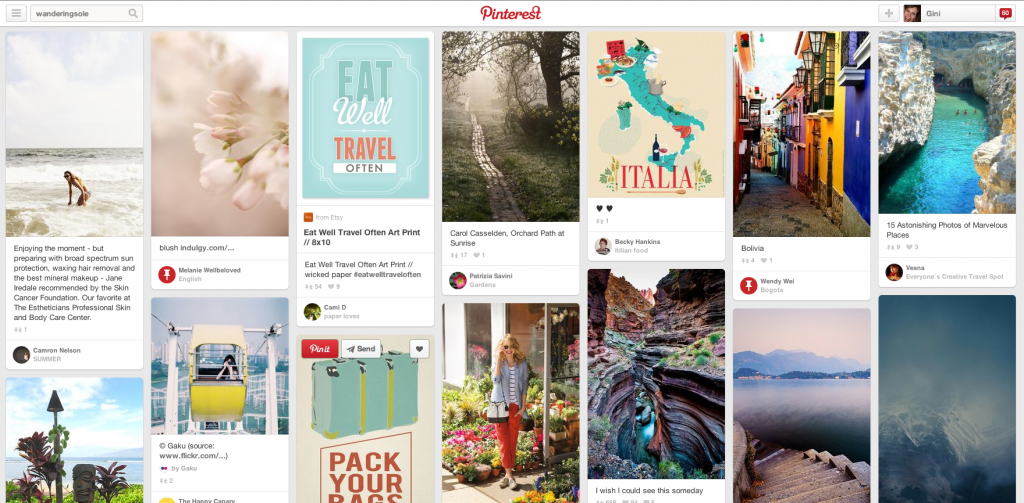 At last count, Pinterest had 53 million unique users a month.
At last count, Pinterest had 53 million unique users a month.
With all those enthusiastic pinners, you might think building a social media contest around people pinning and creating boards would be a no-brainer for most organizations.
That’s what Cole Haan thought when it launched its pin-it-to-win social media contest, which offered a $1,000 shopping spree in exchange for creating boards titled Wandering Sole.
The social media contest rules were straightforward: Pin a minimum of five images from the brand’s Wandering Sole Pinterest board, add photos of your favorite places to wander, and use the hashtag #WanderingSole.
On the surface, it looks like a successful campaign. It has ambassadors creating their own content around the brand’s shoes and it drives traffic to the brand’s Pinterest page…and, ultimately, its website.
In addition, using the hashtag allows the campaign to cross platforms, particularly Twitter and Facebook, and lets users cross-promote on Instagram.
Enter the FTC
But the social media contest came under scrutiny from the Federal Trade Commission (FTC) for not requiring participants to disclose their affiliation with the brand (which is the law). It determined the pins were an endorsement of the brand’s products, which require disclosure.
While the pinners themselves are not in trouble, the brand is under fire for not requiring contestants to disclose that their pins were part of a contest to win a significant amount of money and because the #WanderingSole hashtag wasn’t disclosed as part of the contest.
The FTC determined Cole Haan had violated Section 5 of the FTC Act and issued a closing letter, which is like a formal warning, rather than having to fight it out in court.
The brand’s marketing team likely didn’t consider the implications of disclosure when they implemented the campaign. It’s a grave mistake any organization could make; the best way to protect your business is to know the rules.
Four Rules for a Social Media Contest
Michael Lasky, co-chair of the litigation practice and public relations attorney at Davis & Gilbert, offers four things brands should consider when launching a social media contest, particularly if that platform is Pinterest.
- Pinning may constitute an endorsement of a product or organization. If there is an endorsement possibility, ask people to disclose why they’re talking about your brand.
- Entry into a sweepstakes or contest requires disclosure. If nothing else, err on the side of caution and ask contestants to disclose.
- Understand the terms and services of the social networks—all of them—before launching a contest. While this contest was held on Pinterest, it did cross platforms so now the company is responsible for updates made by contestants on any social networks.
- The FTC is closely scrutinizing the business use of a social media contest. Even if you’re not a big, well-known brand, they could very easily come after you, particularly if your contest gains traction.
The best rule of thumb is to disclose, disclose, disclose.
You cannot, of course, dictate what everyone posts on the social networks, nor can you control what every person says, but if your guidelines or rules state contestants must disclose they are participating to win a prize, you will be covered should the FTC come knocking.
A version of this first appeared in my monthly OpenForum column.